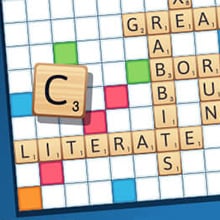What Are Riddle Games?
Riddle games are a type of puzzle or brain teaser in which participants are asked to solve a riddle or a series of them. These games, which can be played individually or in groups, frequently require creative thinking and the application of logic to arrive at the proper answer. Riddle games are popular because they are not only fun but also exercise the brain, improve cognitive abilities, and encourage creative thinking.
9 Tips To Win Riddle Games Effectively
Winning riddle games often requires a mix of creative thinking, logical reasoning, and some strategic approaches. 9 tips to help you succeed in riddle games including:
1. Practice Regularly:
-
Familiarize Yourself with Common Riddles: The more riddles you solve, the more adept you will become at recognizing patterns and common themes.
-
Solve Puzzles and Brain Teasers: Engage with various types of puzzles to sharpen your problem-solving skills.
2. Pay Attention to Details: Every word in a riddle is usually chosen for a reason. You need to look for clues in the specific language used. Then, determine the most crucial parts of the riddle that might point you toward the solution.
3. Think Outside the Box: Riddles often play on words or concepts, so try to think of different meanings or interpretations of the words used. Many riddles are tricky because they require abstract or lateral thinking rather than straightforward logic. So, you should avoid literal thinking.
4. Break Down the Riddle: Break quizz into smaller segments and solve each part individually. Sometimes, putting the riddle in your own words can help you understand it better.
5. Use Logical Reasoning: Reduce your options by removing replies that do not make sense. Sometimes it's helpful to consider what the answer could be and see if it matches the puzzle.
6. Stay Calm and Patient: Do not rush your thought process, if there is no time constraint. Sometimes taking a step back and returning to the issue later can assist. Anxiety can cloud your thinking. Keep calm and approach each riddle with a clear mind.
7. Collaborate with Others: If playing in a team, discuss different ideas and perspectives. Group thinking often leads to the solution more quickly. And another person’s thought process can spark an idea you hadn’t considered.
8. Ask for Hints (When Allowed): You need to use hints wisely, if the game allows, especially for particularly tough riddles. Sometimes a small nudge is all you need to find the answer.
9. Expand Your Knowledge Base: Exposure to different fields (literature, science, history, etc.) can give you the background knowledge that might help in solving certain riddles. A curious mindset will naturally lead you to explore and learn more, which can be beneficial when encountering new riddles.
How To Play Riddle Games With Your Friends?
Playing online riddle games with friends is a highly engaging and interactive experience, even when you’re not physically together. The riddle game offers cooperative and competitive multiplayer modes that allow groups of players to explore and decode puzzles on a variety of topics.
To get started, gather a group of pals who enjoy puzzles and brain teasers. Setting up multiplayer entails creating online lobbies, joining friends' games, and connecting devices locally. Proper communication techniques, such as in-game chat or voice chat apps, should be organized so that team members may efficiently cooperate during cooperative gameplay.
Players can choose to work cooperatively by decoding ascending levels of a series of puzzles together. They can also participate in a competition mode to see who can answer the most correct quizzes.
Riddle games, whether played together or against each other, are an excellent way for groups of friends to bond over the brainstorming moments of discovering the correct answer.










 Survival Games
Survival Games Wolf Games
Wolf Games Knife Games
Knife Games Bob the Robber Games
Bob the Robber Games Snake Games
Snake Games Mahjong Games
Mahjong Games Adam and Eve Games
Adam and Eve Games Spelling Games
Spelling Games Running Games
Running Games Bubble Shooter Games
Bubble Shooter Games Restaurant Games
Restaurant Games Taxi Games
Taxi Games Airplane Games
Airplane Games Arcade Games
Arcade Games Slot Games
Slot Games Vampire Games
Vampire Games Stickman Games
Stickman Games Maze Games
Maze Games